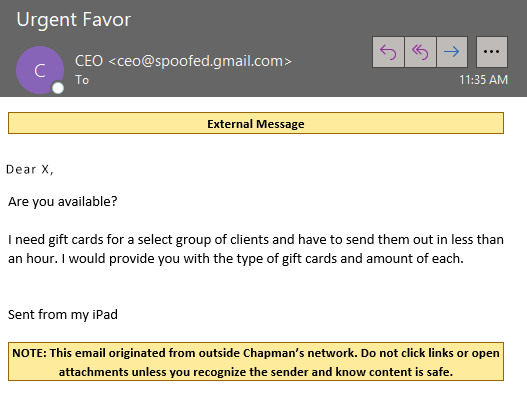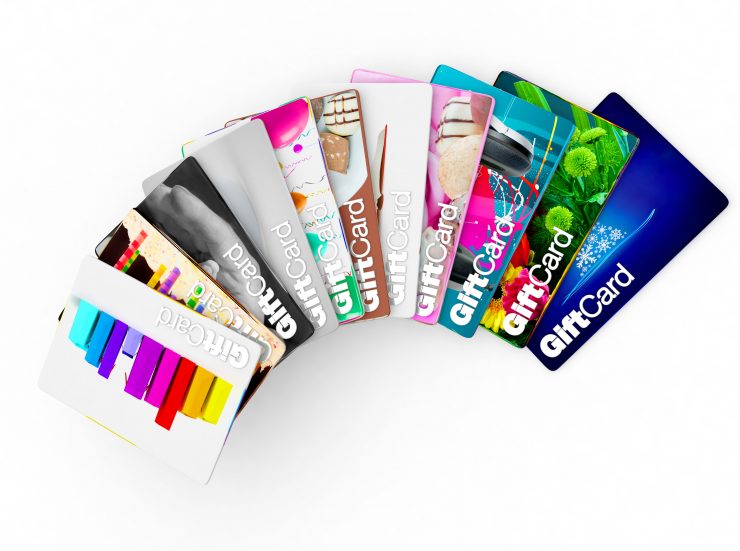A dangerous new scam is on the rise: gift card scamming. According to the Federal Trade Commission (FTC) gift cards are the No. 1 payment method for impostor scams. In this scam, the scammer plays on the emotions of their victims by impersonating someone else and urgently asking or sometimes demanding that the victim purchase gift cards. These scammers will often have a convincing story that makes it difficult to refuse their request.
Some gift card scammers even create spoofed email addresses that resemble the email address of a victim’s friends, family, acquaintances, the victim’s boss, CEO of a company or even the president of a university.
To combat this, the Offices of Information Security and Human Resources will send a simulated phish email on Wednesday, Feb. 25, to all faculty and staff. The purpose of the simulated phish email is to raise awareness and explain how these scams work.
“[the scammer] might pose as IRS officials and say you’re in trouble for not paying taxes; or a family member with an emergency; or a public utility company threatening to shut off your water; or even a servicemember selling something before deployment. Or they might call with great news – you’ve won a contest or a prize! But to get it, you need to pay fees with a gift card,” says the FTC.
The FTC says that the general rule of thumb is to pay close attention to gift card requests: “if anyone tells you to pay by gift card, or by wiring money — for any reason — that’s a sure sign of scam.”

Be On Guard For These “Red Flags”
- We don’t have a CEO. And even if we had one, why would he contact me out of the blue and ask for my help?
- The request is unlikely. “gift cards for clients” in subsequent emails the scammer would ask for a picture of the redemption code – akin to gifting a box with torn wrapping – opened.
- The sender’s email address is “CEO@spoofed.gmail.com”.
-Also, hitting the “Reply” button in Outlook, the email address expands to “CEO <ceo.9kkljwd@chapman.gmail.net-login.com>”. This is not a “@chapman.edu” email address.
– The scammers are relying on the display name to trick people into thinking they are talking to the “CEO” - The yellow banner that reads: “NOTE: This email originated from outside Chapman’s network. Do not click links or open attachments unless you recognize the sender and know content is safe.”
– This is a preventive measure implemented by the department of Information Systems and Technology to help identify emails that originate outside the chapman.edu domain.
Why Gift Cards?
- Most people will do their best to help someone in need. The scammers impersonate someone important in your life or institution.
- They have a convincing story and the only solution is you sending them pictures of gift cards with the redemption code exposed.
- If the victim takes the bait and emails the pictures of the gift cards, the scammers redeem the codes immediately or exchange them for cash or other gift cards.
- The Gift card funds cannot be traced. At that point, the funds are gone with no way of getting them back.
You can read more about the gift card scam in the Federal Trade Commission’s Article.
If you have any questions or you received a fraudulent email request, please email abuse@chapman.edu.
This scam is also featured on Chapman University’s “Trending Scams” page.



